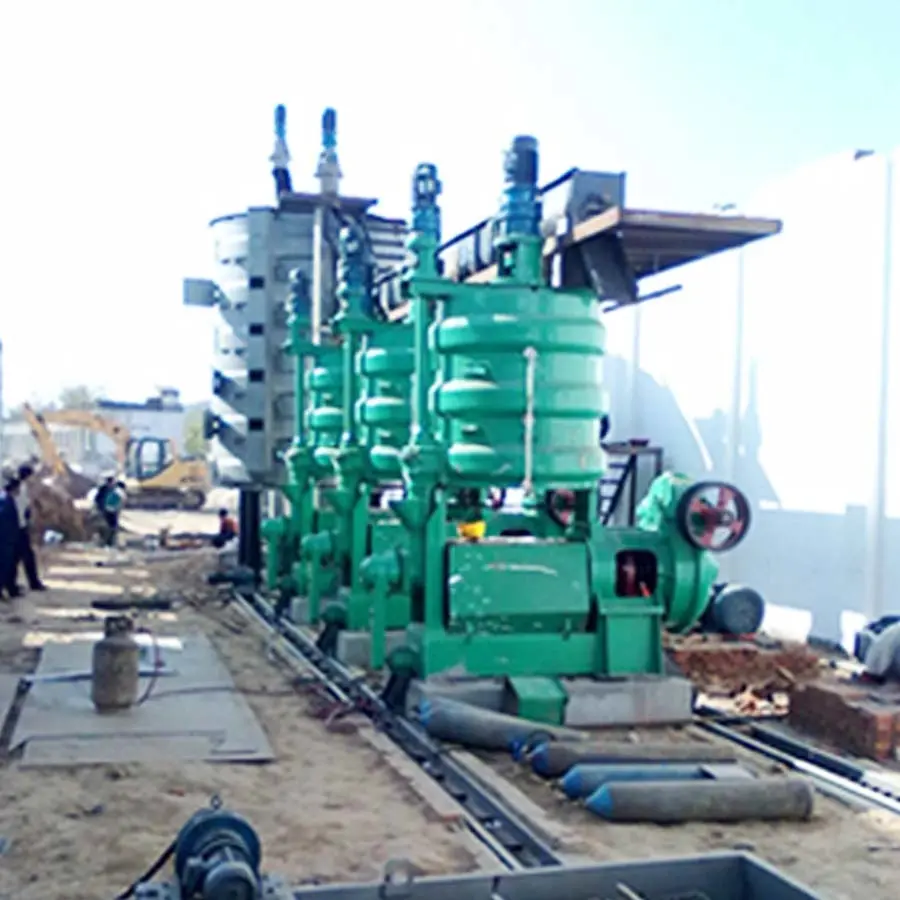Novemba . 15, 2024 04:52 Back to list
custom flaxseed oil refinery unit
Custom Flaxseed Oil Refinery Units An Innovative Approach to Oil Processing
The global demand for healthy cooking oils has surged in recent years, propelled by an increasing awareness of the health benefits associated with various plant-based oils. Among these, flaxseed oil stands out for its rich content of omega-3 fatty acids, antioxidants, and lignans, which contribute to heart health, reduce inflammation, and offer protective cardiovascular properties. Consequently, the establishment of custom flaxseed oil refinery units has emerged as a significant trend in the agricultural and food processing sectors.
A custom flaxseed oil refinery unit is specifically designed to process flaxseed into high-quality oil, tailored to meet the unique requirements of different markets. This approach not only enhances the quality and safety of the oil but also allows producers to cater to diverse consumer preferences and regulatory standards. By utilizing cutting-edge technology and innovative methods, these units optimize the oil extraction and refining processes.
The Process of Flaxseed Oil Refining
The refining process of flaxseed oil involves several key steps oil extraction, degumming, neutralization, bleaching, and deodorization. Initially, flaxseeds are subjected to mechanical pressing or solvent extraction to separate the oil. The resulting crude flaxseed oil, however, contains impurities that must be removed to ensure a high-quality final product.
1. Degumming This step removes phospholipids and other water-soluble materials. By adding warm water or acid, any remnants of gums can be separated, which improves the oil's stability.
2. Neutralization The neutralization of crude oil eliminates free fatty acids, which can negatively impact the taste and shelf life. This is typically accomplished using an alkaline solution, such as sodium hydroxide, which reacts with the acids to form soap that can be washed away.
3. Bleaching This process enhances the color of the oil and removes pigments like chlorophyll and carotenoids. Utilizing absorbent materials, the oil's color can be lightened, making it more visually appealing to consumers.
4. Deodorization The final step involves the removal of volatile compounds responsible for undesirable odors and flavors. By using steam distillation, the oil is heated under a vacuum to preserve its subtle characteristics while eliminating any unwanted scents.
custom flaxseed oil refinery unit

Benefits of Customization
The customization of flaxseed oil refinery units offers several advantages. Firstly, it enables manufacturers to produce oil that aligns with specific standards and preferences, such as organic certifications or non-GMO labels. This distinction can significantly enhance marketability and meet consumer demand for transparency in food sourcing.
Secondly, custom units can incorporate advanced technologies, such as cold pressing or supercritical CO2 extraction, which preserve the oil’s nutritional properties and flavor profiles. This level of customization not only improves the quality of the final product but can also result in higher market prices, benefiting producers economically.
Additionally, investing in a custom flaxseed oil refinery unit allows producers to adapt rapidly to changing market trends. With the flexibility to switch between different oil formulations or packaging sizes, businesses can respond efficiently to consumer shifts, ensuring they remain competitive in the dynamic health-conscious market.
Environmental Considerations
As sustainability becomes a top priority, custom flaxseed oil refinery units can also be designed with eco-friendly practices in mind. These units often incorporate energy-efficient technologies and waste management systems to minimize environmental footprints. For instance, by recycling waste products or utilizing renewable energy sources, manufacturers can contribute positively to sustainable oil production.
Conclusion
Custom flaxseed oil refinery units represent a modern approach to oil processing, allowing for the production of high-quality flaxseed oil tailored to specific market demands. By focusing on efficient oil extraction and refining processes, these units not only enhance product quality but also cater to consumer preferences for health-conscious and sustainable food. In an era where healthy eating and environmental responsibility are crucial, the investment in such custom refinery units could pave the way for growth and innovation in the flaxseed oil industry.
-
HP290 First Press Oil Expeller Machinery: Efficient Oil Extraction
NewsAug.02,2025
-
Top Food Oil Refined Unit Companies w/ GPT-4 Turbo Tech
NewsAug.01,2025
-
Premium Black Seed Oil Expeller - High Efficiency Cold Press Oil Machine
NewsJul.31,2025
-
Oil Processing Equipment - High-Efficiency Flaking Machine
NewsJul.25,2025
-
High-Efficiency Peanut Oil Refined Machine for Quality Oil Production Leading Exporters & Companies
NewsJul.08,2025
-
High Efficiency Sunflower Seed Oil Press – Leading Cooking Oil Press Machine Factories & Suppliers
NewsJul.08,2025
